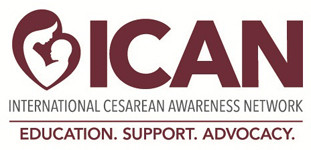Mission Statement
The International Cesarean Awareness Network is a non-profit organization whose mission is to improve maternal-child health by reducing preventable cesareans through education, supporting cesarean recovery, and advocating for vaginal birth after cesarean (VBAC).
Vision Statement
A reduction in the cesarean rate driven by women assuming responsibility for their healthcare by making evidence-based, risk appropriate childbirth decisions.
Statement of Beliefs
We, of the International Cesarean Awareness Network, believe that:
1. The inappropriate overuse of cesarean surgery is jeopardizing lives.
2. When a cesarean is necessary, it can be a lifesaving technique, and worth the risks involved.
3. Birth is a normal physiological process. With emotional support, education, and an honest opportunity, the vast majority can have a healthy vaginal birth.
4. A healthy birth incorporates emotional, physical, and spiritual well-being.
5. Research shows that VBAC is realistic and safe for a majority and a repeat cesarean should never be considered routine– it is major abdominal surgery with many risks.
6. VBAC bans are unethical and unenforceable for hospitals to institute. People have the right to informed refusal which includes declining a cesarean.
7. Facilitation of the informed consent process is incumbent upon every care provider and institution.
8. People have the right to informed consent and refusal, which entails full, unbiased knowledge of the risks, benefits and alternatives of all recommendations.
9. Birthing people must be allowed to express all their birth related feelings in a safe and supportive environment. Emotions have profound effects on the birth outcome and recovery.
10. Recommending and/or performing non-medically indicated cesareans, including elective, is unethical for providers without first informing of all risks of this option, both long and short term.
11. Providers and facilities must make every effort to provide options during cesareans that embody as many of the environment, experiences and research-based benefits of a vaginal birth as possible, as in gentle or family centered cesareans.
12. The number of cesareans on maternal request is being significantly overstated through distortion of research and data.
13. Consumers must assume more responsibility for their own births.
14. Respecting a person’s choice of care provider and location of birth is critical.
